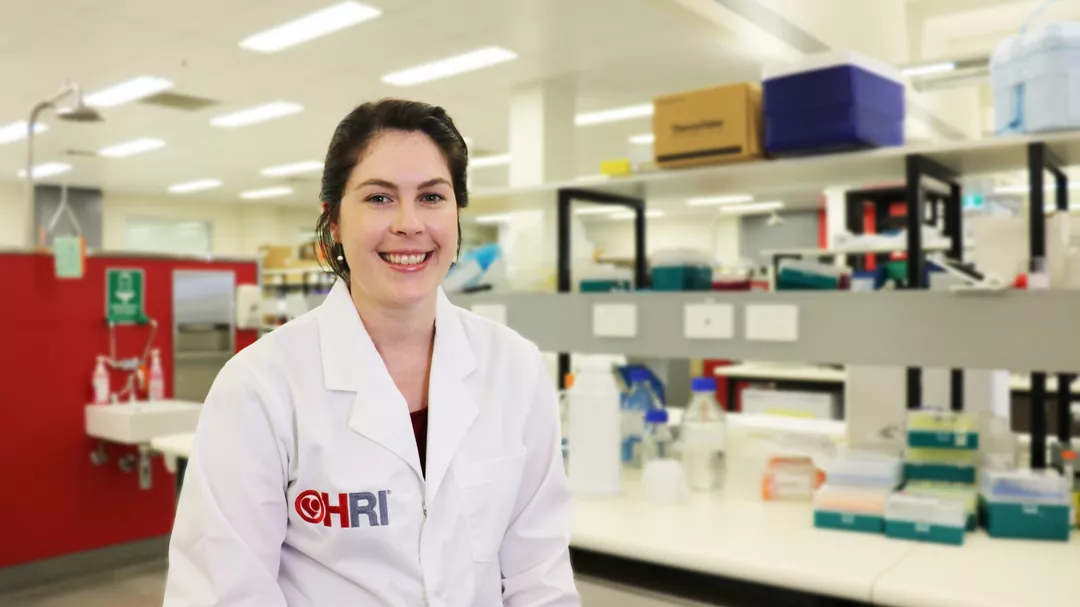Hi, my name is Jessica Maclean
I am a PhD student with the thrombosis research team at the HRI. My career path to get here really started, I think, as a 15 year old when I came home from school and I was talking to my dad about this project that we had and he said to me, "You're going be a scientist, aren't you?" And for me, that's when I knew what I wanted to do.
So I went to university and I did a biomedical degree, and then I did an honours project which happened to be in cardiovascular research. So from my one-year honours project, I then developed a love of cardiovascular disease in a weird way, and developed my passion to be able to fix it, to discover what drives it and then how to fix it from there.
So that led me to Melbourne where I joined my current team, the Jackson lab, who works in thrombosis research. We then moved to the Heart Research Institute in 2015 where I've continued my research into cardiovascular disease, particularly in stroke, and am living my 15-year-old's dream of being a scientist.
I love medical research because it is a detective story. There is always a question, there is always the discovery of the answer. Working out the whodunnit, whether it's a single molecule, whether it's a drug, whether it's a disease state. That's why I love it.
No two days are the same. You have a question, you try to answer it, sometimes it works, sometimes it doesn't, but it's the journey to the answer that's the exciting bit for me.
I think the hardest thing about being a scientist is trying to find funding to keep your projects afloat and keep them going. I think it really takes away time from the lab bench, takes scientists away from what they're best at.
I really enjoy working at HRI because of the team culture. You can be a junior scientist like myself working alongside the director of the Institute, a senior scientist, in the communications team, join the fundraising teams, people who get the message of your science out there. And I find that really fantastic as a young scientist to be able to work with people from many different areas and find the best way to do your research and to be supported while you do your research.
I have the opportunity to travel both nationally and internationally to attend conferences where we argue and discuss and hear about the latest science. And at the end of the day we sit down and try and nut out the answer to this question that we have.
Give it a go. Go and find a lab that you can work in, get a little bit of work experience, see what it's all about. And I think if you are keen and you are interested, go for it. One of my favourite sayings is, if I can, so can everyone else, and I think it's really true. So give it a go, you'll love it.

